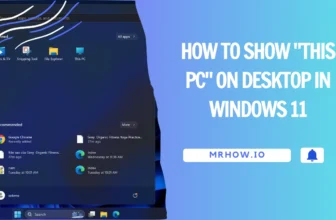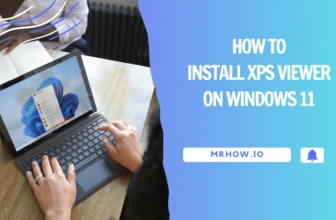Do you have a computer that can run Windows 10? If so, then you’re in luck! Microsoft has just released the new version of their operating system, Windows 11. It’s exciting to know that your current laptop or desktop might be able to run this new OS. But before you start downloading it on your PC, there are a few things you should know about compatibility and requirements for running an updated OS like Windows 11.
Windows 11 is the newest operating system coming out from Microsoft. This article will teach you how to find out if your computer can run Windows 11 and what are some of the benefits that come with it.
Windows 11 Release Date & Details
Windows 11 is currently being tested in Microsoft’s labs. A public beta of the new operating system will be released sometime this year. With Windows 10 now running on over 350 million devices, many people are anticipating what improvements Microsoft could come up with next. The official release date has not yet been determined but an educated guess would put it at mid-2017.
The official blog post from Microsoft states Windows 11 will be released sometime in this year. It’s not yet clear if it’ll come later this year or closer to the end of next year. The sooner they release the final version, the better! I can’t wait to see what improvements they have come up with and how smooth Windows 11.
- Release Date: Late 2021 (October-November 2021)
- System Requirements: Medium
- Genre: Operating System
- Developer: Microsoft
How to Check If Your Windows 10 PC Can Run Windows 11
If you have a computer that can run Windows 10, then most likely it will be able to run Windows 11. Before downloading it on your computer though, there are certain factors and specifications that need to be taken into account first.
- You should always keep up with the latest technology to make sure you are not out of date. For instance, Windows 11 will need a 64-bit CPU and 4GB of RAM in order to run properly! Some CPUs that meet these requirements were unavailable before but have been updated so they can be compatible with this new operating system.
- The user will need the processor to have a Trusted Platform Module (TPM) chip, at least version 2.0.; and for the motherboard’s firmware supports UEFI Secure Boot BIOS
- Windows 11 will not only require less RAM and disk space than its predecessor but also take advantage of higher screen resolutions. Apparently this means you’ll need at least 720p resolution for compatibility or else users might have some trouble using their fingers as mice!
What is TPM 2.0 Chip?
TPM 2.0 (Trusted Platform Module) is a hardware chip that can be added to Platforms, disks and USB drives. For the most part this little chip will allow you to encrypt your data using Bitlocker encryption on Windows machines.
Without going into a lot of technical details it’s basically designed to protect encryption keys and help store passwords securely in hardware encrypted flash storage in devices like computers.
It also allows remote attestation, which means you can see if the PC has been tampered with or not because this module stores encrypted measurements about the device inside itself when it’s powered up. TPM 2.0 was created by Trusted Computing Group for their specifications and standards, so some people refer to it as TPM 2.0 but it’s also known as TCG TPM.
Windows 11 System Requirements
The minimum system requirements for Windows 11 is:
| Processor: | 1 gigahertz (GHz) or faster with 2 or more cores on a compatible 64-bit processor or System on a Chip (SoC) |
| RAM: | 4 gigabyte (GB) |
| Storage: | 64 GB or larger storage device |
| System firmware: | UEFI, Secure Boot capable |
| TPM: | Trusted Platform Module (TPM) version 2.0 |
| Graphics card: | Compatible with DirectX 12 or later with WDDM 2.0 driver |
| Display: | High definition (720p) display that is greater than 9” diagonally, 8 bits per color channel |
Windows 11 Recommended Requirements
- CPU: 2 GHz (must be later than Intel 8th Gen / AMD Zen 2 / Qualcomm 7 & 8 Series 1)
- RAM: 8 gigabyte (GB)
- SSD: 64 GB
- System firmware: UEFI, Secure Boot capable
- TPM: Trusted Platform Module (TPM) version 2.0
- Graphics card: Compatible with DirectX 12 or later with WDDM 2.0 driver
- Display: High Definition (1080p) display
Conclusion
If you are interested in upgrading to the latest version of Windows, but want to make sure your computer will work with it, here is a list of system requirements for running Windows 11. These minimum hardware specifications should help determine if your PC can run this new operating system or not.
We hope that our article helped answer any questions about whether you can upgrade to Window 11 and what type of computer would be compatible with the newest OS from Microsoft!









